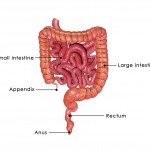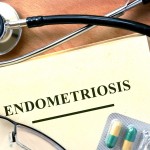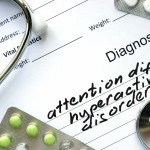

This weekly health news roundup consists of latest news stories discussing ulcerative colitis, Crohn’s disease and rheumatoid arthritis. This week we saw potential for new IBD treatments, the risk of migraines, triggers of rheumatoid arthritis, and the link between PCOS and ADHD.
In case you missed any of our top news stories, we have compiled them all together for you to keep you up-to-date.
 Inflammatory bowel disease (IBD), ulcerative colitis, and Crohn’s disease treatment may be possible with mucus in colon. Although many of us may find mucus to be unpleasant, research has found that it may hold benefits in the treatment of IBDs by helping the body maintain its equilibrium, prevent inflammation, and reduce food allergy problems.
Inflammatory bowel disease (IBD), ulcerative colitis, and Crohn’s disease treatment may be possible with mucus in colon. Although many of us may find mucus to be unpleasant, research has found that it may hold benefits in the treatment of IBDs by helping the body maintain its equilibrium, prevent inflammation, and reduce food allergy problems.
Researchers from the Icahn School of Medicine at Mount Sinai’s Immunology Institute hope that one day mucus may be manufactured and used on sick individuals suffering from IBD as a means to fight inflammation and increase immunity. The researchers found that mucus in the large intestine may work as a powerful anti-inflammatory and can help boost immune function.
Senior author Andrea Cerutti said, “We asked ourselves whether dendritic cells in the gut could capture mucus, as well as bacteria and food antigens. We found that whenever mucus was present, it was stimulating the production of anti-inflammatory cytokines [regulatory proteins released by the cells of the immune system that act to regulate an immune response].” The researchers found that mucus prevented bacteria from damaging immune response. Continue reading…
 Rheumatoid arthritis, or as some refer to it, RA, appears to have a close relationship with periodontitis, which is inflammation of the tissue around the teeth.
Rheumatoid arthritis, or as some refer to it, RA, appears to have a close relationship with periodontitis, which is inflammation of the tissue around the teeth.
Researchers from the Case Western University School of Dental Medicine and University Hospitals of Cleveland have reported that people who suffer from periodontitis and who also have rheumatoid arthritis were able to reduce their arthritic pain, swelling in joints, and morning stiffness, when they cured their dental problems.
Gum disease and rheumatoid arthritis have been linked for some time, but dentists normally treated it by pulling teeth or prescribing antibiotics for the periodontitis. However, researchers discovered through studying a group of patients with rheumatoid arthritis and teeth problems that both diseases share biological mechanism that leads to the health problems. Continue reading…
 Fibromyalgia, a condition characterized by widespread chronic pain, has been associated with migraine headaches.
Fibromyalgia, a condition characterized by widespread chronic pain, has been associated with migraine headaches.
People who have fibromyalgia experience various symptoms, including pain, anxiety, depression, fatigue, mental fog, and morning stiffness. Another common complaint among sufferers is migraines.
Research shows that almost all people with fibromyalgia will suffer a migraine at some point; some will experience headaches on a regular basis. Migraine headaches, along with the symptoms of fibromyalgia, can be very difficult to cope with.
This is how fibromyalgia and migraine syndrome have been explained by neurologists:
When inflammation results due to pain, the brain reacts with ionic activity. This can happen to anyone, but for people who have fibromyalgia, the pain is even worse. Migraines that occur in those with fibromyalgia are often much more intense than those without the condition. Also, some people complain that their original fibromyalgia symptoms get worse as the migraine intensifies. Continue reading…
 Women who suffer from pelvic pain due to endometriosis may need help with their mental health. A new study suggests, endometriosis and psychological health are connected.
Women who suffer from pelvic pain due to endometriosis may need help with their mental health. A new study suggests, endometriosis and psychological health are connected.
Endometriosis is a disorder that impacts the tissue lining the inside of the uterus, called the endometrium. Sometimes, the tissue grows outside the uterus, resulting in this painful disorder pronounced en-doe-me-tree-O-sis. In most cases, it involves the ovaries, bowel, or the tissue lining the pelvis. In rare situations, endometrial tissue can spread beyond the pelvic region.
During a woman’s normal menstrual cycle, the tissue builds up and is shed if she does not become pregnant. Endometrial tissue acts like it normally would, thickening, breaking down, and allowing women to bleed with their menstrual cycle. However, since the tissue is displaced, it has no way to exit the body and is trapped.
Although the disorder can cause pain at any time, many women experience severe pain particularly during their period. Endometriosis can cause the development of scar tissue and adhesions – binding organs together. It can also lead to fertility problems. Continue reading…
 Polycystic ovarian syndrome (PCOS) in women is linked to ADHD and an increased risk of autism in children. A study examined the link between ADHD (attention deficit hyperactivity disorder) and PCOS.
Polycystic ovarian syndrome (PCOS) in women is linked to ADHD and an increased risk of autism in children. A study examined the link between ADHD (attention deficit hyperactivity disorder) and PCOS.
The study included 40 women aged 18 to 35 with PCOS, who were compared to 40 healthy women with normal menstrual cycles. Current and childhood ADHD symptoms were assessed using the Adult ADHD Self-Report Scale and Wender-Utah Rating Scale.
The researchers found that the women with PCOS had higher Adult ADHD Self-Report scores and Wender-Utah Rating Scale scores. Furthermore, ADHD rates were higher in the PCOS women, compared to the control women. There were no significant differences between either group in current or childhood inattention scores. The researchers also did not find a correlation between ADHD symptoms and serum hormone levels.
The results suggest that women with PCOS had higher ADHD symptoms, and additional research is required to better understand the link between the two. Continue reading…
Copyright © www.orthopaedics.win Bone Health All Rights Reserved